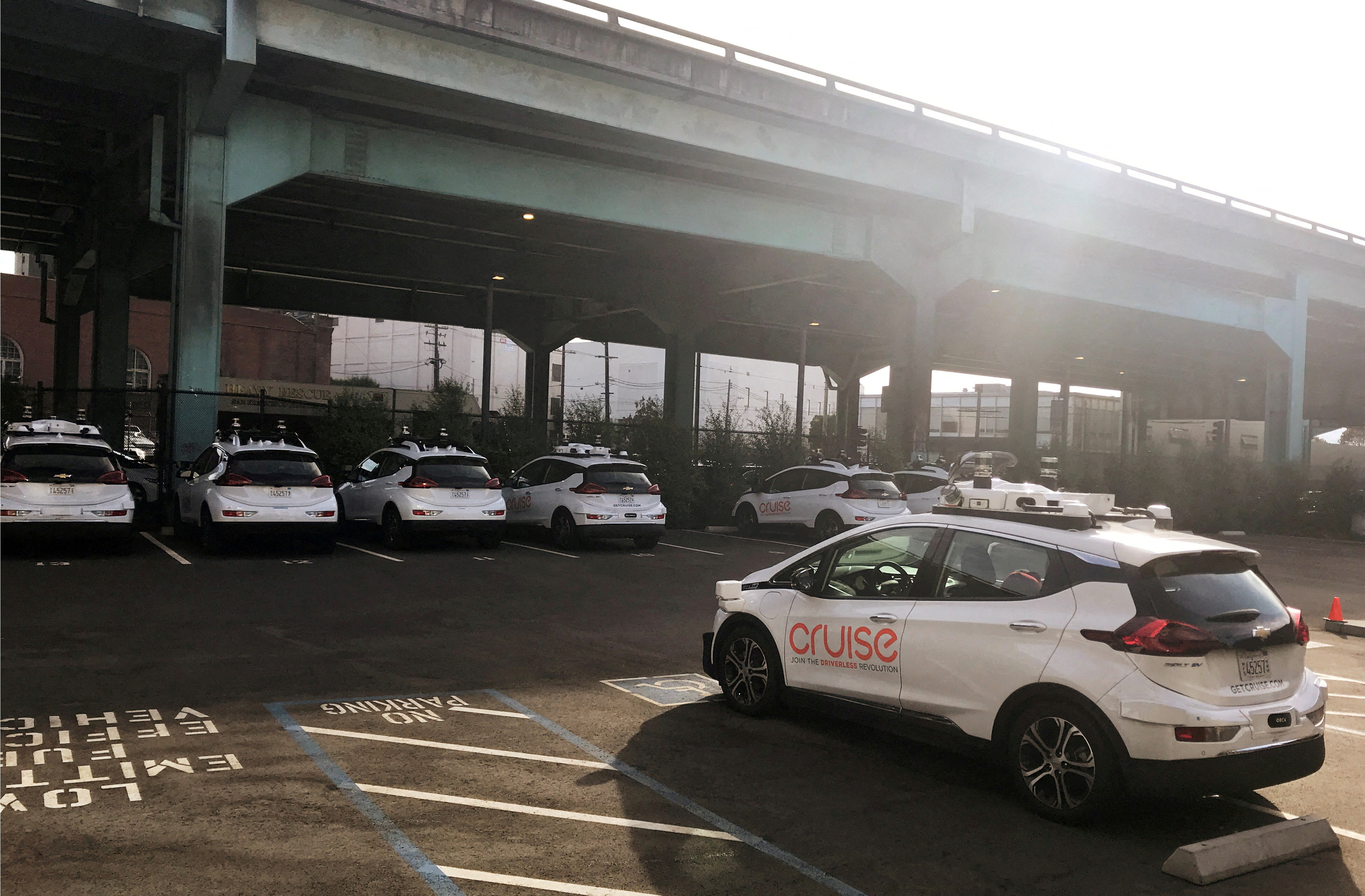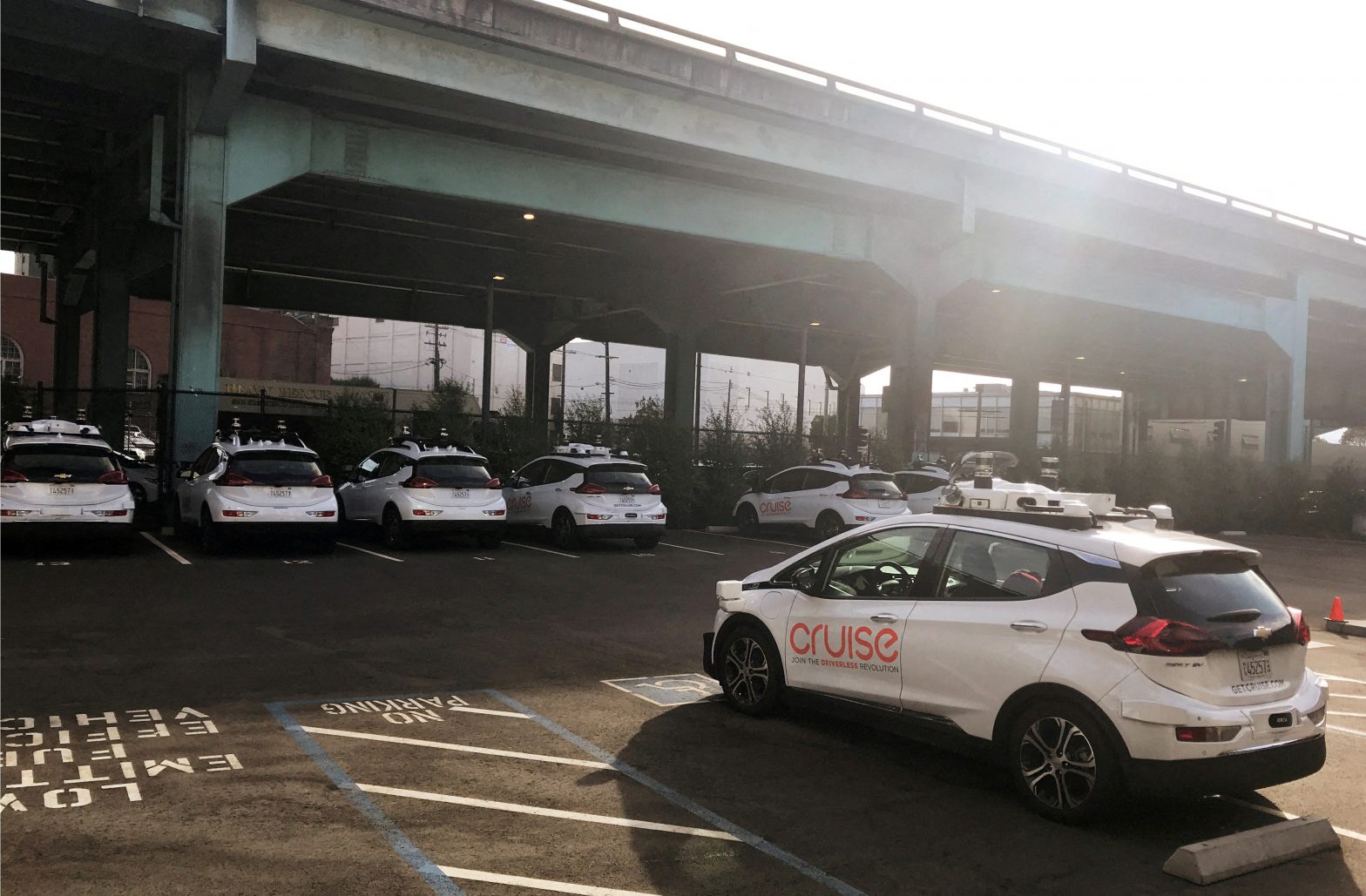
A Cruise self-driving car, which is owned by General Motors Corp, is seen outside the company’s headquarters in San Francisco where it does most of its testing, in California, U.S., September 26, 2018. REUTERS/Heather Somerville//File Photo Acquire Licensing Rights
Dec 5 (Reuters) – General Motors’ Cruise autonomous vehicle unit has hit an “all time low,” said its new leader, while promising to restore trust with regulators and the public after the company pulled all of its vehicles from U.S. roads.
“Our integrity, our competency are being questioned and this really hurts,” said Mo Elshenawy at an all-staff meeting Tuesday, according to a transcript of the call reviewed by Reuters. “We went from an all-time high to an all-time low and from being an industry leader to temporary pausing all of our operations,” he said.
A spokesperson for Cruise declined comment.
Elshenawy was installed as Cruise president last month after its CEO stepped down following regulatory scrutiny after an October accident in which a San Francisco woman was dragged.
He said Cruise’s approach to developing self-driving cars that were simply better than humans has been “wrong” and “not what the stakeholders are expecting from us.”
“We now know that we need to be significantly better than human performance and significantly better across a much wider spectrum of use cases and edge cases,” he said.
Cruise has been under growing pressure after regulators said it failed to fully disclose details of the October accident. Last month, Cruise paused all driverless and supervised car trips in the United States and expanded a safety review of its robotaxis and CEO Kyle Vogt and chief product officer Daniel Kan both stepped down.
Elshenawy seemed to acknowledge a difficult path ahead for the self-driving car company that competes with Alphabet’s (GOOGL.O) Waymo and Amazon.com’s (AMZN.O) Zoox. “We don’t have a deep reservoir of trust with all of our stakeholders and our regulators,” he said.
“This last week a Cruiser shared with me that they don’t wear their Cruise jacket in public anymore,” said Elshenawy. “It truly breaks my heart.”
Cruise could face $1.5 million in fines and additional sanctions over its failure to disclose details surrounding the Oct. 2 accident in which one of its robotaxis dragged a pedestrian after being struck by another vehicle, a California agency said in a letter last week.
The California Public Utilities Commission ordered Cruise to appear at a Feb. 6 hearing for “misleading the Commission through omission regarding the extent and seriousness of the accident” and “making misleading public comments regarding its interactions with the commission.”
The company has hired a law firm to help it conduct a safety review and has pulled all of its vehicles off public U.S. roads in the meantime. Parent GM Monday that the automaker’s external review of Cruise’s safety will last into the first quarter of 2024.
Cruise has said it will conduct layoffs later this month but on Tuesday declined to provide much detail to staff. It has stopped taking questions from staffers at all-hands meetings, previously a fixture.
The company’s chief administrative officer, Craig Glidden, said his focus has been on “resetting” the regulatory relationship and “building trust” and acknowledged “we still have a ways to go,” according to the transcript. “I intend to work collaboratively with legal and government affairs on all the submissions that we need to make,” he said.
Cruise at the meeting said it is reevaluating workers’ compensation structures after suspending a shares buyback program, a decision that caused Vogt to apologize to staff last month. Workers will be eligible for bonuses and promotions in January, an executive said at the meeting.
“At GM, we have encountered bigger hurdles than what confronts Cruise today and we’ve come out a stronger company because of it,” said Glidden, who was an attorney for Cruise’s parent. “I have absolutely no doubt that Cruise will come out a stronger company as well.”
Reporting by Greg Bensinger; Editing by Ben Klayman and Lisa Shumaker
Our Standards: The Thomson Reuters Trust Principles.
